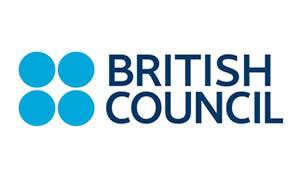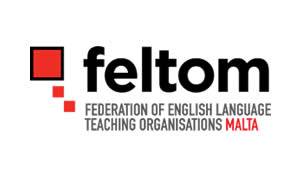Başarılı Bir ‘Personal Statement’ Nasıl Yazılır?

Amerika’nın en iddialı üniversitelerinden biri olan Johns Hopkins Üniversitesi’nin Öğrenci Kabul Departmanı, son 4 yıldır her sene lisans düzeyinde üniversiteye başvuran ve kabul alan öğrencilerin personal statementları (kişisel beyanları) arasında bir oylama yapıp en başarılı olanları seçiyor ve sonraki senelerde kendilerine başvuru yapmayı düşünen öğrencilere faydalı olması için internet sitelerinden yayınlıyorlar.
Aşağıda, 2016 Eylül başlangıç döneminin en başarılı personal statementlarını ve neden başarılı olduklarını listelemeden önce ‘Personal Statement’ kavramının öneminden ve essayinizin(makalenizin) başarılı ya da ‘işe yarar’ bir essay olması için neler yapmanız gerektiğinden bahsetmek isterim.
Personal Statement neden önemlidir?
Personal Statement, öğrencilerin başvurmak istedikleri üniversitelere kendilerini tanıtmaları için verilmiş bir ek fırsattır. Özellikle Amerika’daki okullar personal statementınızda, kendinizle ilgili CV’nizde ve başvurunuzun diğer kısımlarında anlatma fırsatı bulamadığınız ancak kişiliğinizin ayrılmaz bir parçası olduğunu düşündüğünüz bir özelliğinizle veya hayatınızı değiştiren bir olayla bağlantı kurmanızı beklerler.
Personal Statement, sizlere, çok önemli olduğunu düşündüğünüz bir detayı başvurunuza ekleme fırsatı verir. Bu şekilde okullar sizi sadece akademik ve aktivite başarılarınızın dışında da tanıma fırsatı bulacaktır.
Personal Statement’da nelerden bahsetmeli?
Okullar essaylerinizde özellikle sizin hangi konuda tutkulu olduğunuzdan ve seçtiğiniz okulun bu tutkunuzu gerçekleştirmek için neden doğru yer olduğunu düşündüğünüzden bahsetmenizi beklerler. Genel geçer bilgilerden ziyade sizin için önemli olan bir konudaki kişisel tecrübelerinizden bahsetmenizi isterler. Unutmayın ki bu essay sayesinde sadece sorulardan oluşan bir başvuruyu kişiselleştirme ve kendinizi gösterme fırsatı elde ediyorsunuz. Essayinizi doğal bir tonda yazın, havalı sözcükler veya ansiklopediden fırlama bilgiler kullanmamaya özen gösterin. Kendiniz olun ve kelimelerinizle kişiliğinizi yansıtmaya çalışın.

Johns Hopkins University’ye göre ‘İşe Yarayan’ Essayler
Aşağıda ise 2016 Eylül döneminde Johns Hopkins University’den kabul almış olan öğrencilerin essayleri arasında yapılan değerlendirme üzerine Admissions(Kabul) departmanı tarafından ‘işe yarayan’ essayler olarak sıralanan essayleri ve altlarındaki paragraflarda bu essaylerin neden başarılı seçildiklerinin açıklamasını okuyabilirsiniz..
1. Just Keep Folding—Jodie
Having explored the myths from ancient Greece, Rome, and Egypt, my curiosity was piqued in eighth grade by a simple legend from Japanese lore. If you fold one thousand paper cranes, the gods will grant you one wish. I took it as a challenge. My previous forays into origami had ended poorly, but I was so excited to begin my quest that this detail seemed inconsequential. My art teacher loaned me a piece of origami paper and, armed with an online tutorial, my quest began. Like an early prototype of the airplane, I ascended towards my dreams for a glorious moment before nose-diving into the ground. The first crane was a disastrous failure of wrinkly lines and torn paper. Too embarrassed to ask for another, I turned to my stack of Post-it notes. By the third attempt, I ended up with a sticky pink paper crane. Holding that delicate bird, I was flooded with triumph and elation.
The first two hundred cranes were all crafted from Post-it notes. Armed with a pack of highlighters, I decorated each piece of paper individually. I folded cranes at home, between classes, and in the car. My fingers were permanently sticky from the glue I scraped off every square. Slowly, my collection grew: first ten, then fifty, then one hundred. Before the task could become monotonous, I started experimenting. How small was it possible for a crane to be? Smaller than a golf ball? Smaller than a dime? Small enough to sit on the end of a pencil? Any size was attainable. I could make a crane smaller than almost any arbitrary form of measurement. Soon I could finish a crane in fifty seconds or with my eyes closed. Anything square and foldable became my medium. Paper towels, candy wrappers, and aluminum foil joined my vibrant menagerie of carefully folded paper. I was unstoppable; that wish was as good as mine.
By six hundred cranes, the increasing demands of high school academics caused my pace to slow. I despaired. I wouldn’t let this be another ambitious project that I couldn’t finish.
My cranes mattered to me. As an outlet for expression, they served as a way to defuse frustration and sadness, and a source of pride and joy. Their creation allows me to bring beauty to the world and to find a sense of order in the bustle and chaos of life. There is a lot of beauty to be found in tiny things. I’m reminded that little gestures have a lot of meaning. I have given away cranes to my friends as a pick-me-up on bad days, and I have made cranes to commemorate people, such as the dark green crane I made the day my grandmother died. They are a symbol of hope to remind me what I have accomplished.
So, I pushed myself to keep working and to keep folding one crane at a time. My determination paid off, and in the summer after sophomore year, my passion was reinvigorated. One month before the end of junior year, I folded my thousandth paper crane. As I leaned over the open drawer brimming with origami pieces in a multitude of sizes and colors, I felt a rush of satisfaction and triumph. Not only was 1,000 cranes an achievement in its own right, but I proved to myself that I can finish what I start.
The world is filled with big numbers. College tuition, monthly rent, and car prices deal in the many thousands. Those figures are incomprehensible to someone who has never interacted with anything so large, and I wanted to understand them. A thousand will never simply be a number to me: it is hundreds upon hundreds of hand-folded cranes combined with years of effort.
So what did I wish for? It turns out, I didn’t need the wish. I learned I have the power to make things happen for myself.
“Jodie’nin essayinin en etkileyici kısmı 1000 tane Turna katlamış olması değildi; bu tek bir olay aracılığıyla bize kendisi hakkında ne kadar çok bilgi aktarabilmiş olmasıydı. Essayi sayesinde Jodie’nin, yaşadığı ilk başarısızlığın üstesinden gelip bütün o lise koşuşturmacasının arasında ne olursa olsun hedeflediği şeyi başarana dek geçirdiği kişisel gelişime tanıklık etmiş olduk ve dirençli biri olduğu kararına vardık. Yaptığı Turnaları kötü günler geçiren arkadaşları ile paylaşmasından ve kaybettiği kişileri anmak için özel Turnalar yapmasından iyi ve şefkatli biri olduğunu anladık. Ayrıca farklı Turna boyutları yapmayı denemesinden Jodie’nin meraklı ve deney yapmayı seven bir karaktere sahip olduğunu anladık. Sahip olduğu bu özellikler Jodie’nin bizim burada sahip olduğumuz bu topluma nasıl katkıda bulunacağı konusunda bize çok güzel ipuçları verdi. Bizim de zaten öğrenciyi tanımaya çalışmamızın tek amacı bu.”
2. The Palate of My Mind—Meghna
A question that every high school senior is familiar with is: “What kind of college is the right fit for you?” My criterion doesn’t appear in the deluge of admissions pamphlets; that’s because I want my school to resemble my favorite dish: the hummus-tabouli wrap.
…and Johns Hopkins University is the creamiest, tangiest, most flavorful hummus-tabouli wrap in existence.
The secret to any savory wrap lies in how its flavor is contained. Regardless of what outside influences are imposed upon it, the pita bread expertly holds all of its ingredients without allowing them to spill. Hopkins opposes outside pressures, unapologetically supporting individuals who are unafraid to break tradition. The OUTlist, an online database for Hopkins affiliates who openly identify themselves as members of the LGBT community, revolutionized the visibility of LGBT individuals in higher education and created a support network at the university. For students who are struggling with their identity (due to the fear of coming out to their families or friends), I want to help them express themselves and understand that they are not alone. I want to serve as an advocate as well as a source of comfort, like a homemade pita that is warm and soft, yet tenacious.
Next on our wrap is the core layer of hummus, lathered on the pita and heavy with expectation. Being the most renowned staple of the Mediterranean diet comes with its pressures, but hummus handles it well, always stepping up to the plate, ready for any intimidating food critic. Similarly, Hopkins’s academic diversity lives up to its reputation and more. The Classics Department offers 83 different undergraduate courses, with varied paths that students can take in the pursuit of cultural and literary knowledge. I hope to study the interrelationship of modern literature and culture and its classical roots in Latin by examining international texts in courses such as Latin Literature Beyond Hermeneutics taught by Professor Butler. I intend to further facilitate international communication—a modern necessity—by researching how English is adapted by different cultures. I can imagine narrowing my research from World Englishes to the fundamentals of the English language that bring about its malleability under Professors Celenza or Roller of the Classics Department.
After the hummus follows the influx of diced tomatoes, onions, and parsley, all varied in taste, combining to form the tabouli sauce. Tabouli is accepting of its ingredients, which when combined, bring to it a taste that is unparalleled by any other ingredient of wrap. I hope to spend my next four years in the Hopkins community learning alongside students from backgrounds starkly different from my own, who, like each component of tabouli sauce, bring their varied perspectives to discussions, an invaluable trait when studying how English has been adapted by different cultures.
In this world of flavorful foods and people, the delectable allure of Johns Hopkins University entices the palate of my mind. And I hope to eat my fill.
“Meghna, sahip olduğu akademik başarının ve ders dışı yaptığı aktivitelerin Johns Hopkins ile nasıl bağdaştığını açıklamakta güzel bir iş çıkarmış. Hopkins’de geçireceği yılların kendisine nasıl etki edeceğini ve onu nelerin beklediğini iyi kavramış gibi görünüyordu. Essayinin en ilginç kısmı ise bize akademik başarılarından bahsederken onunla ilgili başvurusunun başka herhangi bir yerinde öğrenemeyeceğimiz bir detay vermesiydi: en sevdiği yemek.”
3. Intercom Enthusiast—Isaac
The most exciting time to live in Vermont is mid-February. This is the time when one is given the privilege of a 30-minute walk to school in sub-zero temperatures, with a 30-minute trudge home in the dark after a long day. It’s been four months since winter began, and it’ll be two more until it’s over. The firewood is being rationed to keep the house at a barely livable temperature, a steamy 50 degrees, and colds are so rampant that people lose half their body weight in phlegm each day. Yet, however dull Vermont may seem to students and teachers as they wrap themselves in layer after layer of flannel, make no mistake, today is the beginning of an era. Today is the day when Isaac (that’s me) starts his job of putting smiles on grim faces as the reader of the morning announcements.
“But Isaac, that job is super boring! You just read what’s written on a piece of paper,” is what an uninformed person might say, someone who obviously doesn’t know about my passion for annoying the tired and melancholic with smiling positivity. While expression and humor has not historically been a part of this process, and while ad-libbing has been strictly advised against, I go for it anyway. And why not? The worst possible outcome involves only a stern lecture and an expulsion from the job.
Fortunately, there is not much going on this week, which means I have some wiggle room with what I can say. The loud buzz of the intercom whines throughout the school, and the silent apprehension of the day is met, somewhat unexpectedly, with a greeting of 20 “yo’s” and a long, breathy pause. I artfully maneuver someone else’s writing into my own words, keeping the original intent but supplementing the significant lack of humor with a few one-liners. I conclude by reminding everyone that just because the weather is miserable today does not mean that we have to be as well.
Luckily, the principal loves it. And despite the fact that I urge everyone to interrupt my history teacher’s classes to wish him a happy birthday, I get to keep my job for another day. I have people coming up to me left and right, telling me that I made them smile. When I hear that, I smile back.
For the rest of the month, I work to make sure that people hear my message: even though we are at the time when school and winter are beginning to seem endless, there are still reasons to grin. I urge people to attend basketball games or sign up for spring sports. I announce birthdays and other special events. Before every day, I make sure I have a message that will make people think, “you know, today might not be so bad after all.” After my month ends, the announcements have been changed. The next readers tell jokes or riddles, or sing songs and invite others to sing with them. I watch the announcements evolve from an unfortunate but necessary part of the day to a positive and inspiring event. It is now more than just a monotonous script; it becomes a time to make sure that everyone has at least one thing to smile about.
Life shouldn’t have to be a dreary winter day; it should be the satisfaction of a good saxophone solo or the joy of seeing one’s friends every day at school. It is the enthusiasm of a biology teacher, the joy of a sports victory, and even the warm messages of a disembodied voice on the intercom. I use that message to help freshman feel less nervous at their first race or to encourage my friend to continue taking solos in jazz band. And in the most dismal time of year, I use that message in the daily announcements.
“Pek çok lise öğrencisi, lise hayatlarını akademik başarıya ve okul içinde edinecekleri yüksek liderlik pozisyonlarına odaklanarak geçirirler. Ancak Isaac’in essayi, Isaac’in kendisinden beklenmeyecek bir şekilde kendi topluluğu içindeki insanların üzerinde pozitif bir etki oluşturmasından bahsediyor. Isaac’in essayi neşeli, eğlenceli ve komik bir dille yazılmıştı ve okuması oldukça keyifliydi. Daha da önemlisi bize Isaac’in karakteri ve varlığının Johns Hopkins kampüsünde nasıl bir hava yaratacağı ile ilgili ipuçları veriyordu. Ayrıca başvurusunun geri kalan kısmı için bolca malzeme üreten günlük hayatı ve çevresi hakkında bir fikre sahip olmamızı da sağlıyordu.”
4. Growing Strawberries in a High School Locker—Seena
One day this year, as I was walking by my perpetually empty locker, I was struck by an idea. I cannot identify what sparked its conception, but as my idea started to grow, thinking of possible solutions and analyzing and assessing feasibility issues began to consume me. My father calls this a “designer’s high,” and it was very familiar to me. I’ve experienced it often while collaborating with my robotics team, and in the hours I’ve spent with my father on design concepts for his prefabricated homes. Still, nothing I had worked on before was similar to the feeling this “out of the box” idea had triggered.
Growing strawberries in a high school locker seemed fairly simple at first. Despite knowing that this is not the typical habitat for strawberry plants, I knew from my green-thumbed mother that strawberries are among the easiest fruits to grow. Many students and teachers became interested in my project, yet were skeptical of my botanical prowess and quick to conclude that a plant could not possibly receive its basic necessities in a locker, which didn’t have proper ventilation, was hot and humid, and was shielded from both sunlight and any source of water. Still, I was determined to make this work. The unfriendly habitat and logistical obstacles did not deter me.
My horticultural roots stem from my mother and elementary level biology. It wasn’t until this year that my knowledge expanded beyond this casual level into a realm where biology, chemistry, and physics found beautiful, synergistic intersections. I was determined to apply what I had learned and got to work.
Due to the lack of electricity and direct sunlight, I decided to use a solar panel paired with a light sensor on the outside of my locker to power a strong, blue LED light, which is best for photosynthesis and plant growth. A friend taught me how to solder and helped me create the solar panel setup, which turns on the blue light only when it is dark outside so the plants experience the proper light cycles. I also set up a system to slowly water the plants automatically. This involved a series of drip bottles—which another friend had for his old, now deceased, pet guinea pig—arranged to drip into each other and then onto the soil.
Having addressed the issues of light and water, I focused on the need to circulate air. Leaving the door closed would provide essentially no circulation and would create a hot and moist environment, making the plants more susceptible to mold. After experimenting with various designs and a 3D printed prototype, I came up with an extension of the latching mechanism on the inside of my locker, which I called the “strawberry jamb.” The jamb, which I cut using our school’s CNC router, sufficiently boosts airflow by allowing the door to remain ajar about two inches while still maintaining the integrity of the existing locking mechanism. I made a beautiful wooden box, emblazoned with the laser-cut engraving “Strawberry Fields Forever” and provided proper drainage onto a tray inside the locker to avoid water damage to school property. The strawberry plants are now growing in my partially open locker providing a topic of conversation and much commentary from students walking by.
What began as a seemingly improbable idea fed my passion for creative thinking and mechanical engineering. This project not only allowed me to practically apply isolated academic principles I had studied, but it also pushed me to traverse multiple disciplines to creatively solve problems. Furthermore, it’s uniqueness beckoned for community input and collaboration, allowing me to access resources to achieve fiscally responsible solutions and ultimate success. For me, it was invigorating to propel a project that many deemed impossible into the realm of possible. I intend to continue to explore and invent because only then are new realities possible.
“Bu essay sayesinde Seena bizlere sadece akademik ilgi alanı –makine mühendisliği– hakkında bilgi vermekle kalmayıp aynı zamanda Homewood kampüsünde nasıl bir öğrenci olacağıyla ilgili de tahminlerde bulunmamızı sağlamış. Okul dolabında başarılı bir şekilde çilek yetiştirmiş olması bize pratik zekasını, eğlence anlayışını ve en önemlisi de grup çalışmasına yatkınlığını göstermiştir. Seena, hikayesinin satır aralarında bize ekip işlerine ne kadar önem verdiğini anlatmıştır – ki bu direkt olarak yazmaktan çok daha iyidir. Seena’nın essayinde kişisel ve entelektüel hikayeler birleştirilmiş ve tam da kabul komitesinin dikkat ettiği şey, yani bu öğrencinin kampüs hayatına nasıl katkı sağlayacağı anlatılmıştır.”
5. In Pursuit of the Sublime—Kaylee
Goal: 40,000.
I wrote because it made me somebody else—somebody who mattered.
The power of writing, I believed, existed solely in one’s ability to pursue the sublime. So I wrote to create different, better manifestations of my life.
I grew up dreaming and writing (and thinking they were the same) about being a Hermione Granger with Harry as my sidekick battling twenty Voldemorts (twenty!); my stories were dynamic.
I was cool.
Status: 5,000.
My mom once joked that I should audition for the role of Cho Chang. I threw a chopstick at her. Cho Chang was weak, so terribly weak that Harry dumped her.
I knew why she said it though—I rarely existed in books and when I did, I was the Cho Chang, the inconsequential, insignificant Asian girl who could never assert herself.
In a fit of spite, I killed my Hermione, realizing I could never be her.
Status: 1,000.
Somebody once told me to read The Joy Luck Club but I never bothered. A book about a bunch of Cho Changs couldn’t possibly be sublime.
Instead, I buried myself in the books hidden under my bed, away from Mom, about girls in high school who didn’t do anything besides fall in love. So, to improve my own story, I decided to fall in love with the first boy to call me pretty.
I was satisfied.
Status: 8,000.
Living life vicariously was comfortable and easy.
Perhaps that’s why, at fifteen, I paid no mind to my grandpa’s deteriorating health or my dad’s anxiety. Because these were not the kinds of pain I had ever read about, I didn’t find them good enough to write about.
So, I went looking for better inspiration—for more mockeries of love, ways to validate my insecurities, and priorities that shouldn’t have been labeled as such.
It was all so cool that I couldn’t stop writing about it.
Status: 11,000.
During this magnificent, glorious streak of writing, dreaming, and pretending, I learned that 40,000 words make a novel.
I had to do it. Once I get published, everybody would get a taste of my sublimity. Mom and Dad would be so impressed. I’d probably even become famous! Hence, I became fervently obsessed with word count and cared for little else.
Status: 15,000.
But then I turned seventeen and finally began to process what I had experienced years earlier. I had been witness to my grandpa, reduced to flesh and bones (but hardly any flesh), barely clinging to life in a maggot-infested hospital in Dengzhou—something I had forced myself to forget.
Suddenly, I couldn’t keep pretending that crafting a fictitious version of my life on paper could replace what is real.
I erased everything.
Status: 0.
I started over.
I wrote about my real thoughts, my family, the times I was happy, and the times I was not. I wrote about my grandpa.
I showed Dad. I thought he’d be proud.
He was not.
What? You wrote this? Why? What are you trying to prove?
Nothing.
For the first time, nothing. I’m just writing about life.
But you should keep that private. It’s too revealing and distressing. It’s not…
Sublime.
I know.
It’s. Not. Sublime.
I crumbled.
Then came the summer before my senior year. I finally read The Joy Luck Club.
In the entire novel, I didn’t come across a single Cho Chang. What took the place of sublimity, instead, were real people. Mothers and daughters who breathe and hurt and love.
I laughed and cried and began to write.
Status: Not counting anymore.
I don’t write to create the next Hermione, become the best cliché, or impress Mom and Dad. I write to express the thoughts that are most real to me, ones I cannot confine any longer.
I am real and I care about being real—that is my power, not just as a writer but as a person.
“Kaylee ile ilgili olarak en çok kendisiyle ilgili önemli bilgileri bu kadar yaratıcı bir şekilde tasvir edebilmiş olmasından etkilendik. Essayinin eşsiz formatı içerikle uyum içinde olmanın yanı sıra yazma konusundaki tutkusunu da sergilemişti. Essayinin en önemli noktası ise hem bir genç kız hem de bir yazar olarak büyümesini şekillendirmiş olan küçük ve büyük olayları anlatıyor olmasıdır. Essayinin sonunda başkalarını etkilemek için değil, sadece kendisi için yazmaya karar vermiş olması ise kendine olan güvenini ve olgunluğunu anlatmaktadır. Bu küçük hikayeler sayesinde Kaylee’nin sınıf dışında da nasıl bir öğrenci olabileceğiyle ilgili bir fikrimiz oluştu – bu da başvurusunun herhangi başka bir yerinde bulunmayan bir detay.”
– Johns Hopkins Undergraduate Admissions Commitee




